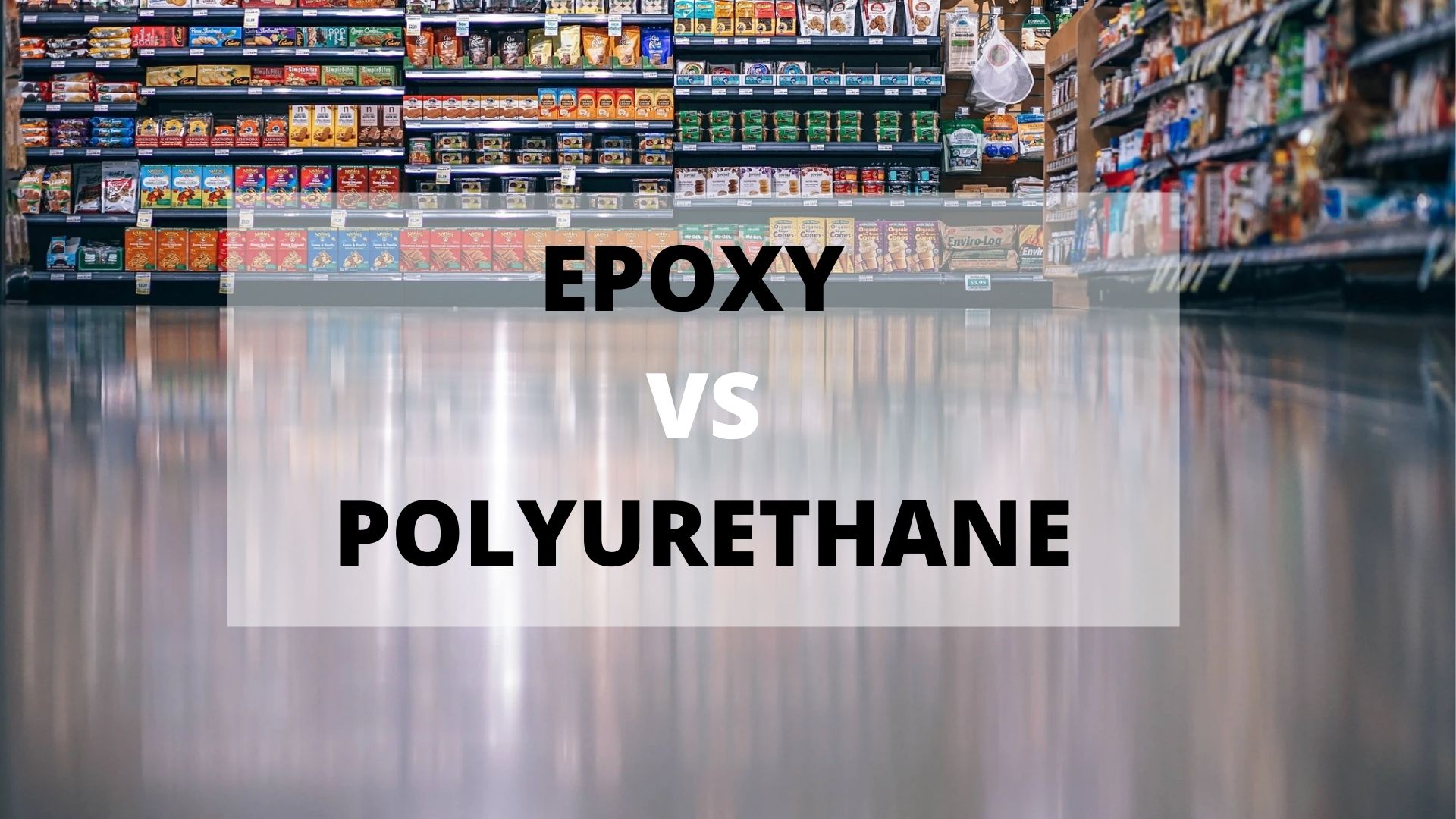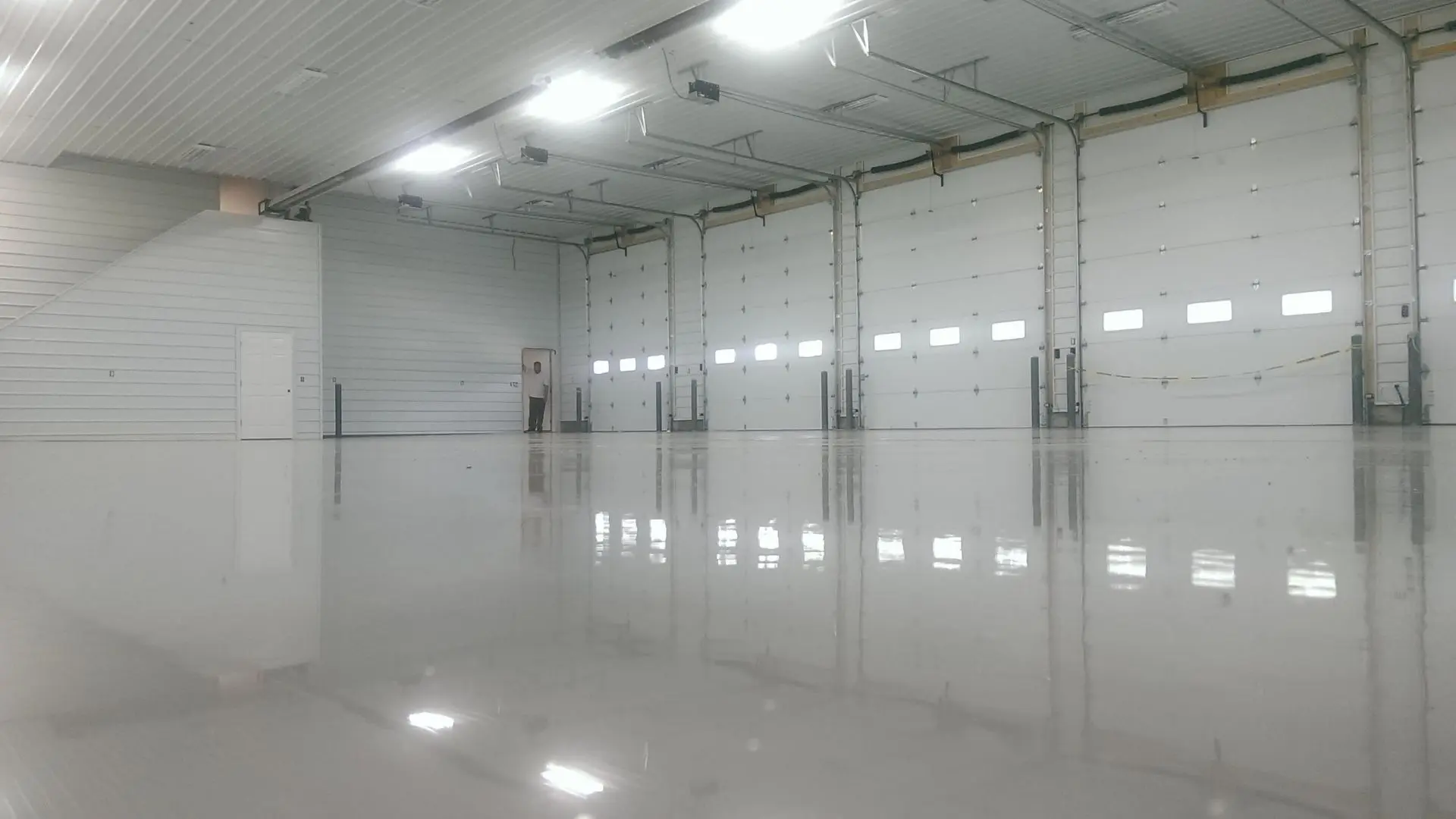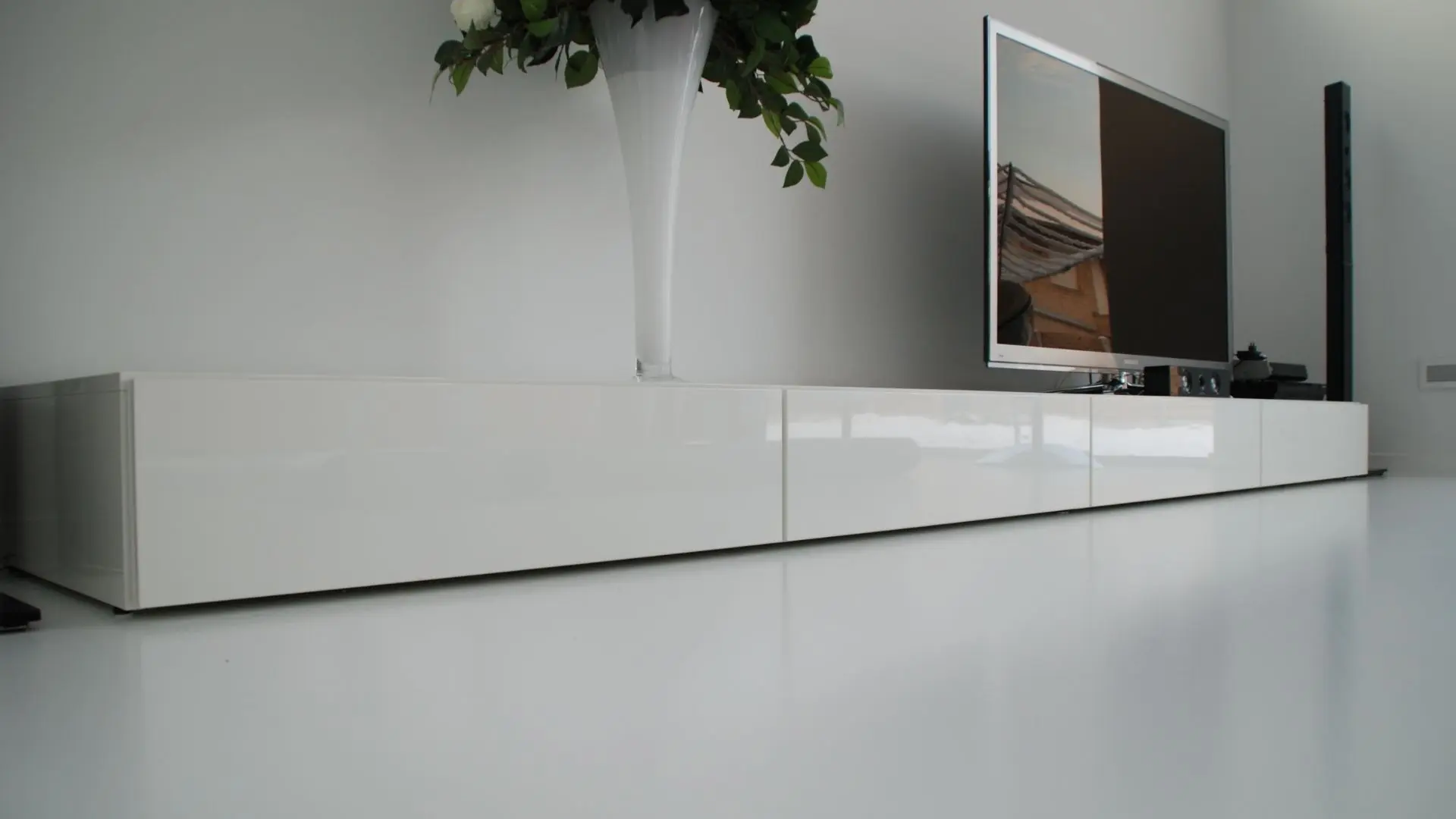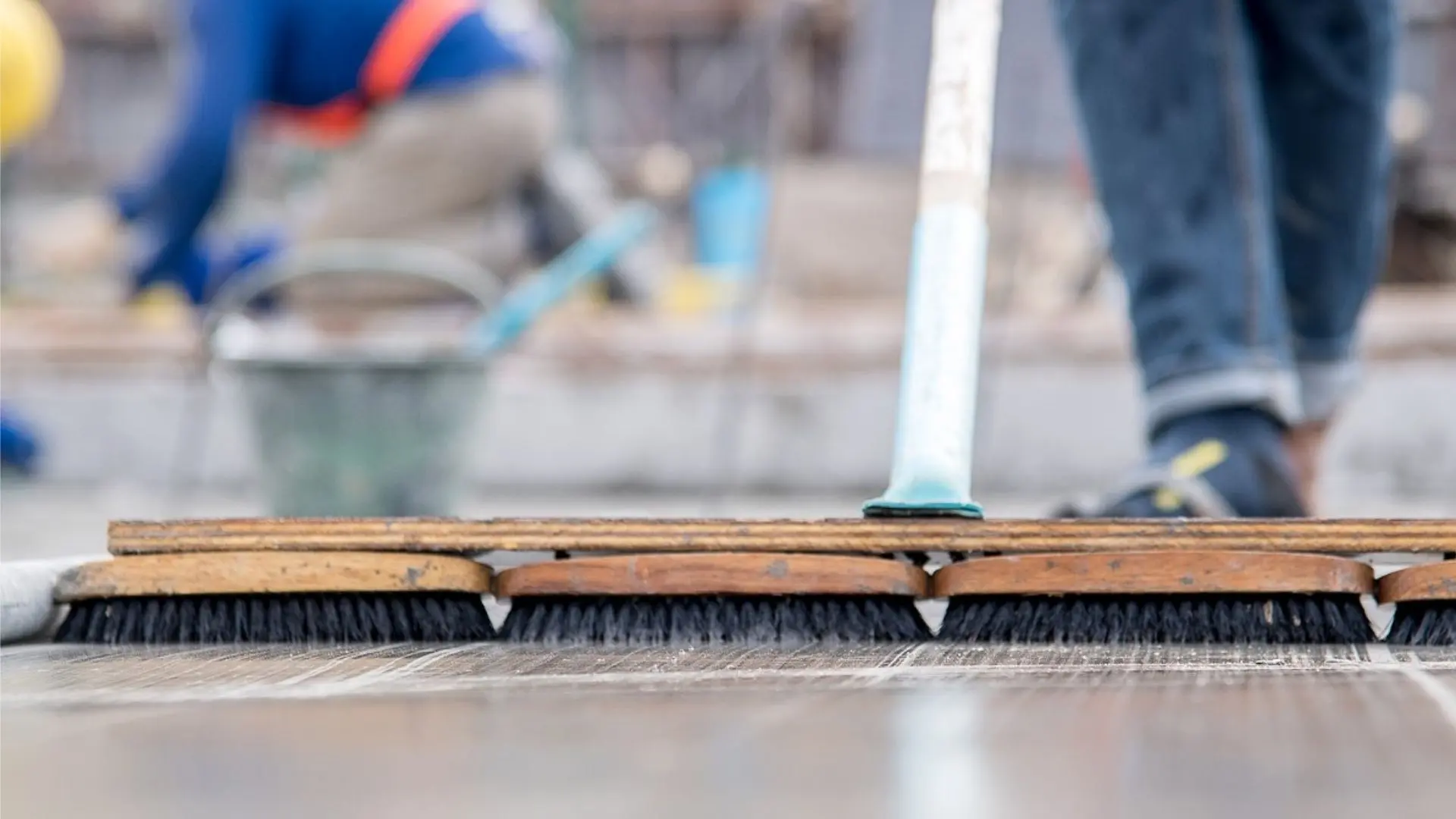Epoxy or Polyurethane? Here’s What You Need to Know

Regarding coating, the floors, epoxy and polyurethane are excellent options depending on your requirements.
Both materials have advantages and disadvantages, which may complicate choosing either. To make matters even more confusing, these materials are solid and durable, making them top contenders.
However, there can only be one type of coating on the floor. This is why we have put together this little guide for you.
Hopefully, this will help clear the confusion and allow you to pick the right one. Now, let’s move on to the essential details.
Epoxy Coatings
Let’s start by discussing a bit about what epoxy coatings are. Usually used on concrete flooring, epoxy is durable and resistant to damage caused by a lot of activity on the surface. An epoxy coating is versatile, allowing you to curate it at various thicknesses.
The two parts are mixed well together and then applied to any concrete surface where it is left to cure. The thing to remember here is that changing the ratios of the resin and hardener is possible depending on the intended outcome.
The epoxy coating is customisable and delivers a glossy or matte finish. But these are just the convenience surrounding epoxy; here are some reasons why they are trendy.

1. Ideal For Concrete
As mentioned, an epoxy coating is ideal for working with concrete. One of the main reasons for this is that it bonds fast to concrete and allows the surface to be more open to topcoats.
2. Thick Coat
Another reason this is so popular is that epoxy coatings are much thicker than any other material. Usually, the coat is around 8 to 15 mm wide, ideal for covering blemishes and cracks on the concrete surface. Additionally, since the coat is thick, it is much more durable and long-lasting.
3. Resistant
Finally, this thick and hard surface is resistant to impact, high volume of traffic and even chemicals in most instances. If you want to add a coating to a surface that will be used frequently, then epoxy is ideal. It is not 100% solid and doesn’t produce VOC.
Polyurethane Coatings
Let’s move on to polyurethane coatings, but you must wonder if epoxy is excellent. Why even consider polyurethane in the first place? This is because polyurethane is abrasion-resistant and highly durable, allowing you to get a matte or shiny finish.
It is also easy to install, one of its most desirable properties. We’ve mentioned some of its other advantages below.

1. UV - Resistant
This is the most crucial reason Polyurethane is neck and neck with epoxy coatings. While the latter can be used on any surface, it still needs polyurethane to protect it from sunlight.
2. Chemical Resistant
Epoxy coatings can be made chemical-resistant, but polyurethane coatings have a much more comprehensive range of chemical resistance. This makes them ideal for parking spaces and any surface that might experience heavy traffic.
3. Smooth Finish
Nevertheless, polyurethane offers a much greater variety of finishes than acrylic, so it is a matter of personal preference. This material can be found in a wide variety of finishes, from semi-gloss to high-gloss, so there is a lot to choose from.
Things To Consider
Now that we have discussed the differences between the two options let’s discuss how to decide which one to choose from the two choices.

1. Cost
The first and most important thing is cost. Generally, polyurethane costs more than epoxy; however, its value is far more performance.
When comparing the two, polyurethane’s lifespan is much more than epoxy’s. Despite costing less, an epoxy coating will require more financial attention in a few years.
2. Resistance
This point ties in with the previous point, as the materials’ resistance determines the maintenance cost. Epoxy coatings are durable, thick, and long-lasting because they have ample resistance.
However, their chemical and UV resistance is not that great, so it is best not to use them in certain situations. But polyurethane, on the other hand, can be more universally used, including with epoxy, although individually, it may not fill cracks or gaps in concrete effectively.
3. Heat
Polyurethane takes the prize for heat and shock resistance as it usually remains undisturbed. Epoxies can also offer heat resistance to a certain level; however, they may not be the best for temperatures above 100 degrees.
4. Surface
The surface on which you use these materials also plays a significant role. Usually, surfaces in parking lots or any space with foot traffic have epoxy coatings since they offer good impact resistance.
However, polyurethane is a far better option for more industrial-grade surfaces, like in factories or commercial buildings. This is mainly because such surfaces experience extreme temperatures, chemical spills, and foot traffic.
Mixing Polyurethane With Epoxy
Whether the surface is industrial-grade or commercial, mixing the two is one of the best things you can do. Epoxy offers excellent thickness and can bond well to concrete, while polyurethane has an excellent finish.
The two can be mixed, where the former acts as a top coat and an extra layer of protection.
Choosing Between Epoxy Or Polyurethane
When these two materials are mixed together, the flooring will be optimised, and you will be able to save time, money, and confusion by making this decision.
But at the end of the day, it all comes down to what you want. In our opinion, they both have their functions, and the best way to take advantage of them is by mixing them.
Let us know your thoughts in the comments section; we will be back soon with more guides like this. Until next time!
Newsletter
Sign up to our flooring, epoxy and concrete blog newsletter and get all the latest news, tips and tricks from the industries best in Sydney.
Related Articles

Epoxy Paint: What Is It Used For and Its Benefits?
What is the purpose of epoxy paints? Our guide will help you find the answer to your question by explaining everything you need to know.

What Is The Best Concrete Sealer For Your Driveway
Looking to pave your driveway with a suitable concrete sealer? Check out this brief guide to know which sealer is the best for you!

Amazing Benefits Of Epoxy Flooring For Commercial Kitchens
Wondering if epoxy flooring is the best choice for your commercial kitchen or not? Then check out our guide to know the perks of installing one in your space.